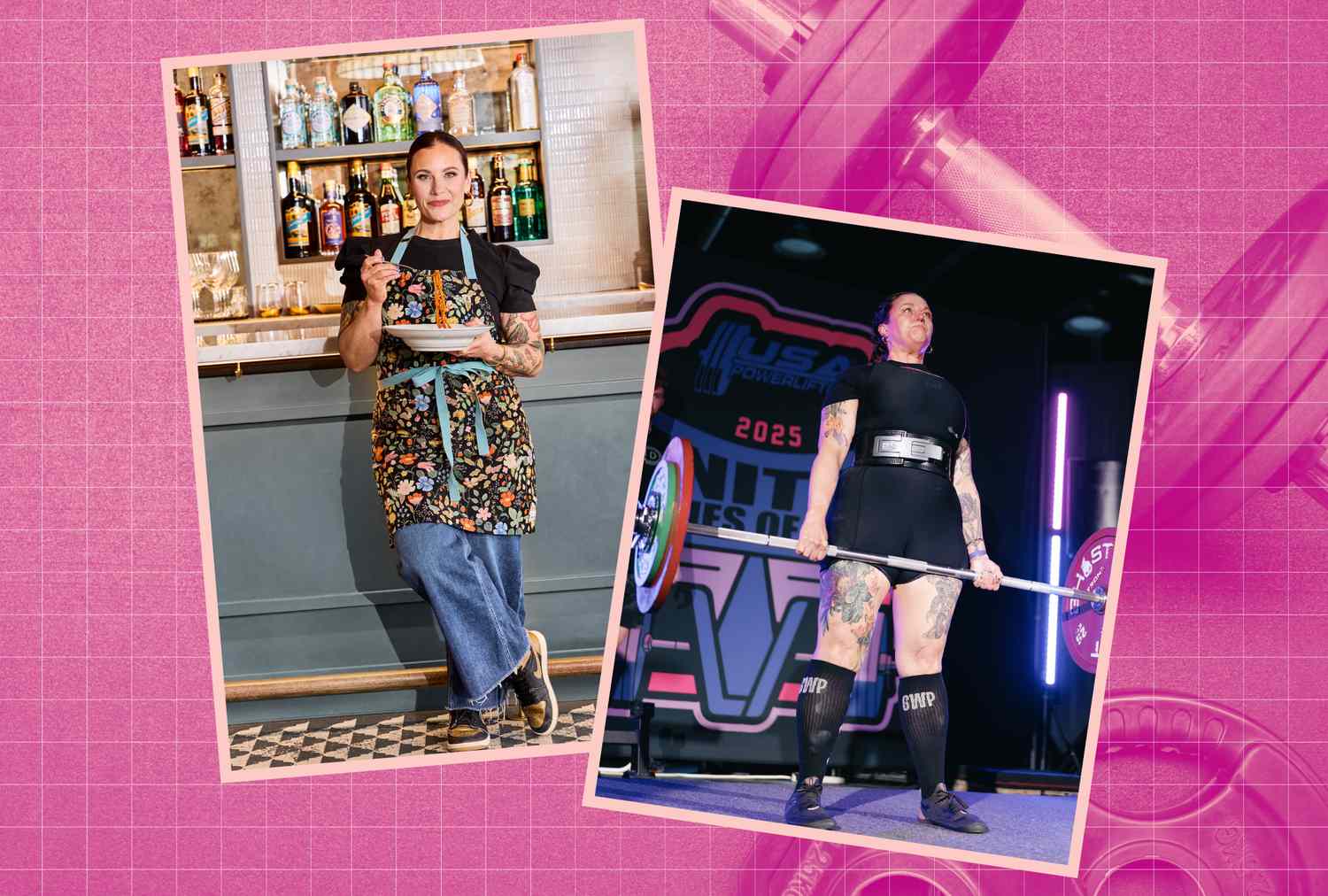I never meant to become a powerlifter.
In fact, it happened by accident. In my mid-30s, I was in a low place physically and mentally. I was burned out, tired and in pain all the time. I had been living with chronic back pain for five years that shaped every part of my day. There was a period when I couldn’t even get up in the morning without rolling onto the floor first. I genuinely believed that might be how I lived the rest of my life. I was told, more than once, that even if I had surgery, being pain-free wasn’t a realistic goal.
I started working with a trainer because I wanted to learn how to box. I wanted to become more active to improve my physical and mental health, and boxing seemed fun and a good way to de-stress. Plus, I liked how fast-paced and engaging it seemed. Something else became clear as I trained: I was strong—very strong. As part of my training, I started lifting weights. My trainer added more weight to the bar as I progressed, and I was surprised how strong I was—and how much I loved it.
This was the transition to powerlifting—I was drawn to the feelings I felt during those workouts: the clarity, the confidence, the calm.
If you’re not familiar with powerlifting, let me explain. It’s a strength sport built around three lifts: the squat, the bench press and the deadlift. Unlike bodybuilding, which emphasizes muscle growth, definition and appearance, or Olympic lifting, which focuses on two explosive movements—the snatch and the clean and jerk—powerlifting comes down to one thing: pure, honest strength.
For me, it’s also mental. There is a strength and clarity that comes from lifting very heavy weights. It’s the only time I feel completely free. When I’m under a barbell, pushing or pulling hundreds of pounds of iron, I can’t think about anything else—not my restaurants, not the schedule, not the never-ending parental to-do list. That moment, that effort, is total presence. It’s meditative. It’s liberating. And it’s all mine.
When I first discovered the sport, I started following powerlifters on social media. I dreamed about doing a powerlifting competition for years, but I never believed that I was strong enough or good enough to step onto the platform. I worried I wouldn’t belong and that people might laugh if I failed. I was nervous to put on a singlet, nervous to compete and nervous to fail publicly—those fears kept me from competing for many years.
Even if I had overcome those fears, life had other plans: I opened three restaurants, I wrote a book, my spouse and I spent seven years trying to have a baby—and didn’t succeed—and then came a pandemic. I finally got pregnant, and our daughter arrived in the fall of 2022.
There was nothing more clarifying for me than becoming a parent, especially an older parent. I gave birth to my daughter when I was 44. I made a promise to myself to improve my physical health—not just to “get strong,” but to be healthy for the long run. For six months I walked 10,000 steps a day. I swam. I moved. I focused. And suddenly, I wasn’t just lifting for myself—I was lifting for her. To always show up, to keep up and to be there for as many years of her life as I possibly could.
I thought again about competing, but all of my old insecurities came rushing back. But this time, I thought that having a goal could give my training a new purpose and might push me in a way nothing else had. So, I signed up.
Binh Tran
I competed in my first meet when I was 46. I chalked my hands, stepped onto the platform and did something I had only dreamed about for years. It was one of the most powerful experiences of my life. Not because I was fearless—I was scared, but I did it anyway. And guess what? People didn’t laugh. They cheered. They welcomed me. And I walked away not only stronger, but more confident, more focused and more proud of who I am than I’ve ever been.
Powerlifting gave me a new identity: not just chef, not just mom, not just business owner. I am an athlete. That word felt so far from me for so long, but now it’s mine. And I’m not giving it back.
There’s a particular kind of power in starting something new later in life—especially something you were told not to do. You do it for yourself. You do it because you’ve earned the right to take up space.

